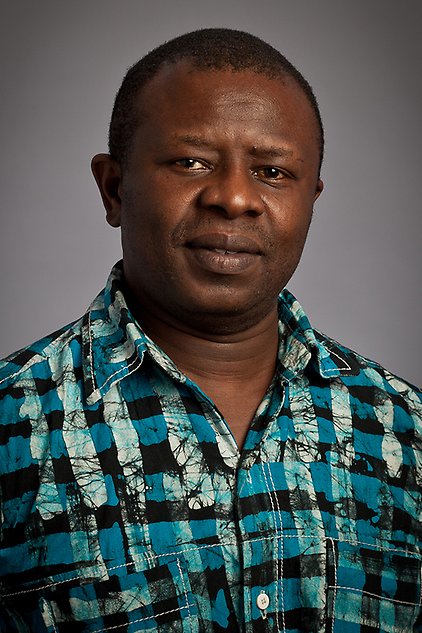Companies' innovation capability stimulated by cooperation
New research from Halmstad University shows that an increase in cooperation makes it possible for all actors in the supply chain to raise their productivity and become more innovative. In his doctoral thesis, Faisal Iddris has examined how corporate innovation capability is affected by the actors surrounding a company.
”I wanted to find out how the different aspects of the supply chain work together, and how this cooperation creates opportunities for innovation. A company cannot exist on its own. It needs the assistance from many other supporting actors in order to work properly. For instance, a manufacturing company is dependent on access to raw material and components, and all companies need different kinds of information. In that way, products and services are developed through interplay between many different actors”, says Faisal Iddris.

From sun to snow
During a visit in Ghana in 2012, Svante Andersson, professor in marketing at Halmstad University, met Faisal Iddris. That was the start of a fruitful cooperation. At the time, Faisal Iddris was working at University of Education Winneba, but he was in no way unfamiliar with Sweden. As a matter of fact, he had moved to Luleå in 2002, in order to study for a master’s degree in electronic commerce and marketing. After that, he returned to Ghana to teach at the University. Due to this previous connection, applying for a doctoral education at Halmstad University felt like a natural step to take.
”I was studying environmental engineering at a university in Germany when I first heard about the excellent finance and business programmes that Swedish universities are known for. That is how I ended up in Luleå, and as part of the deal, I changed my study orientation as well”, says Faisal Iddris.
In Luleå, Iddris studied electronic commerce and marketing, which at the time was a rather new area of research, and it was within this field he had set out to write his thesis. His interest in corporate innovation capability was first invoked when he came in contact with Halmstad University, which is profiled as the innovation driven university. The choice of research area was also due to the fact that Iddris wished to collect parts of his research material in his country of origin, and in Ghana, electronic commerce is not as common as it is in Sweden.
”I found it difficult to locate Ghanaian companies who used electronic platforms. The process of digitalisation has not gone as far there. Because of that, I had to reconsider, and thus, my choice landed on innovation capability”, says Faisal Iddris.

Faisal Iddris
Customers vital to the innovation capability
Faisal Iddris’ study focuses on what is referred to as ’the focal firm’, a concept which has to do with the company positioned in the middle of the supply chain, being provided with goods, services and ideas from various supply chain members. Such a supply chain member can be another company that contributes with raw material, or with knowledge in the form of different services, but it can also be a client or customer. The study shows that contributions from customers are vital for companies’ innovation capability. However, there is an important difference between Ghanaian and Swedish companies.
”In the Swedish companies, I found that most of the innovation capability stemmed from cooperation with outside actors, not least from customers. Getinge Infection Control AB, which is one of the companies that I studied, have a customer centre that you can contact if you have any questions regarding services or products provided by the company, or if you have any suggestions for improvement. Getinge is a business-to-business company, and as such, their operations are directed towards other companies, rather than being focused on the end consumer. This also means that their clientele is more inclined to get engaged by providing comments and suggestions. Getinge receive a fair amount of ideas regarding product and service development, which of course has a positive effect on the innovation capability. In that way, innovation becomes an issue for the entire company, and not just for its CEO”, Faisal Iddris says.
Centralised innovation
In Ghana, Faisal Iddris found a different situation. There, innovation tend to be more centralised, and companies put a lot of faith in the cognitive ability of their CEOs. The CEO functions as a generator of ideas, as well as a driving force for development and innovation. The Ghanaian companies that Faisal Iddris studied also lacks a structured department for research and development. Instead, they bring in consultants, and the CEO bases his or her decisions on their recommendations.
”The companies don’t use brainstorming or team work to the same extent that Swedish companies do. That came as a surprise to me, since it deviates from the theories about innovation capability”, says Faisal Iddris.
Companies with a high rate of development
The Ghanaian companies included in Faisal Iddris’ research are all active within the business of herbal medicine. It was a conscious choice, since these companies tend to be very innovative.
”The business of herbal medicine has grown very fast. About twenty years ago, herbal medicine was bought at the local market or in the streets, or it was something that your grandmother concocted in her own kitchen. Since then, development has held a staggering pace, and today the global market for medicinal herbs is estimated at $100 billion, and is predicted to reach $500 billion in 2050. The whole process has changed, and now you can find the products in pharmacies. In Ghana, there even is there a Bachelor of Science degree in Herbal Medicine, at Kwame Nkrumah University of Science and Technology (KNUST), for pharmacists focused on natural medicine, and there are state hospitals which only use this kind of medicine. Companies have to be innovative if they are to survive at such a rate of development”, says Faisal Iddris.
The innovation capability of the future
Faisal Iddris intend to continue his research after the public defence of his doctoral thesis. There is a lot which is yet undiscovered, and today, innovation and its’ driving forces are more important than ever, especially in light of Horizon 2020, which is the European Union’s programme for research and innovation.
”There is a clear ambition for both the EU and Africa to be innovative. Therefore, I am going to keep investigating innovation capability, and what factors make companies innovative. It is important to gain understanding and develop knowledge within the area, and to strive towards an increase in cooperation between companies. It is not until all actors within the supply chain work together that actual innovation can take place”, Faisal Iddris concludes.
Text: Christa Amnell
Photo: Magnus Karlsson

